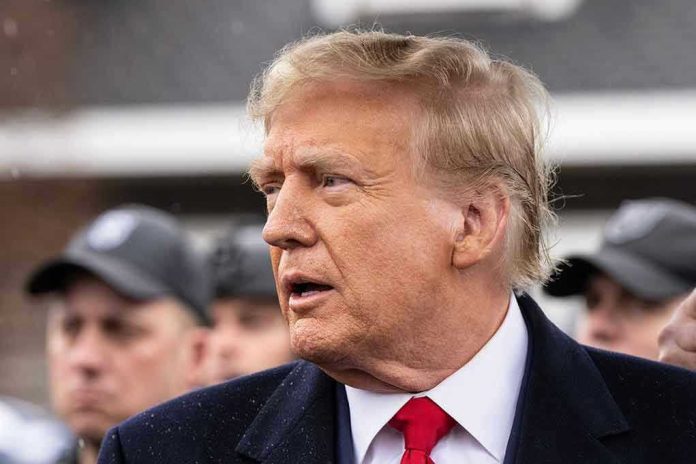
A federal judge has ruled President Trump’s deployment of National Guard troops in Los Angeles illegal, marking another judicial attack on presidential authority to secure American communities from chaos and lawlessness.
Story Highlights
- Federal judge blocks Trump’s National Guard deployment in Los Angeles
- Ruling challenges presidential authority during civil unrest situations
- Decision could set dangerous precedent limiting executive emergency powers
- Constitutional questions raised about federal vs. state authority in crisis response
Judge Blocks Presidential Emergency Response
A federal judge issued a ruling declaring President Trump’s use of National Guard forces in Los Angeles illegal, directly challenging executive authority during times of civil unrest. The decision comes as Trump attempts to restore law and order in communities plagued by violence and disorder. This judicial intervention represents another example of activist courts undermining presidential powers explicitly granted under constitutional emergency provisions, potentially handcuffing future responses to domestic threats.
Constitutional Authority Under Attack
The ruling raises serious concerns about judicial overreach into executive branch responsibilities during national emergencies. Presidential authority to deploy National Guard troops has long been established under federal law, particularly when local authorities prove unable or unwilling to maintain public safety. This decision could create a dangerous precedent that prevents future presidents from responding effectively to riots, civil unrest, or other domestic security threats that require immediate federal intervention.
Implications for Law and Order
The judge’s decision undermines the fundamental principle that elected leaders must have tools available to protect citizens from violence and maintain public safety. By blocking National Guard deployment, the court effectively prioritizes legal technicalities over community protection. This ruling could embolden criminal elements and discourage law enforcement from taking necessary action during future emergencies, leaving law-abiding Americans vulnerable to mob violence and anarchist activities.
Setting Dangerous Legal Precedent
Legal experts worry this ruling could hamstring presidential responses to future domestic crises, from natural disasters to terrorist attacks. The decision reflects a troubling pattern of judicial activism that seeks to constrain executive authority through narrow interpretations of emergency powers. Constitutional scholars argue that such restrictions could prove catastrophic during genuine national security emergencies when swift federal action becomes necessary to preserve American lives and property from immediate threats.
BREAKING: Judge finds Trump's use of National Guard in L.A. illegal https://t.co/2AhvrxltPw via @YouTube
— Marc Weber (@drmarcweber) September 2, 2025
The broader implications extend beyond this single incident, potentially weakening America’s ability to respond decisively to domestic threats while encouraging further judicial interference in executive decision-making during critical moments requiring immediate action.



